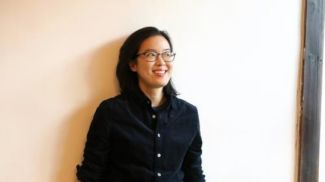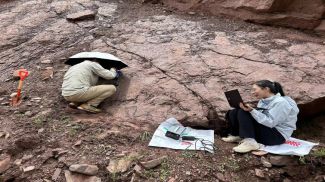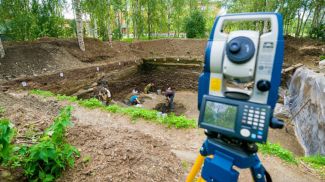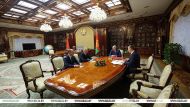
BEIJING, 9 September (BelTA - China Daily) - Asian countries should make
full use of the power of culture and civilization to support regional
unity, openness and progress for a shared future, a forum in Malaysia.
"We should help establish a new Asian model for the development of cultural heritage and for international cooperation," said Qu Yingpu, publisher and editor-in-chief of China Daily, at the Forum on Cultural Heritage Conservation in Selangor, Malaysia.
"In this way, regional countries can jointly contribute to fostering a community with a shared future for both Asia and all humanity," Qu said.
Themed "Shared Heritage, Shared Future", the forum was jointly organized by China Daily, newspaper alliance Asia News Network and the KSI Strategic Institute for Asia Pacific, a think tank.
"We have to work together to promote the exchange and mutual learning of Asian cultural heritage," said Christina Yeo Ken Yin, undersecretary of the International Relations Division in Culture at Malaysia's Ministry of Tourism, Arts and Culture.
In addition to cooperation programs in cultural heritage with countries such as China, Thailand, Brunei, Singapore and Indonesia, Yeo said Malaysia is preparing to join the Alliance for Cultural Heritage in Asia — an intergovernmental platform initiated by China to promote regional cooperation in preserving regional cultural heritage.
"Civilization exchanges and mutual learning form an important drive for human progress and global peace and development," said Chang Shan, counselor of the cultural affairs department of the Chinese embassy in Malaysia.
With Asia being an important cradle of human civilization, China and countries in the Association of Southeast Asian Nations are linked by mountains and rivers and share historical bonds, which have led to close people-to-people exchanges, said Chang.
Noting that this year marks the 50th anniversary of the establishment of diplomatic relations between China and Malaysia, Chang said the two countries' cooperation in cultural heritage protection will continue to play an important role in bilateral exchanges.
Mahfuz Anam, chairman of Asia News Network and editor and publisher of Bangladesh's The Daily Star, said cultures speak louder than languages and act as effective communicators among different people.
He urged people, particularly journalists, to devote more energy to learning and comprehending different cultural heritages to reduce misunderstandings in a world with more conflicts and uncertainties.
Ronald Gan, president of Persatuan Peranakan Baba Nyonya Malaysia, said the Baba and Nyonya community is a typical example of cultural exchanges between China and Malaysia, with blended elements in cuisine, attire and architecture.
"We are, after all, the descendants of the wise Chinese who migrated to Nanyang with the values of inclusiveness and mutual benefit," said Gan, who has been organizing a Wangchuan ceremony in Melaka.
The ceremony, jointly nominated by China and Malaysia, was added to the UNESCO intangible cultural heritage list in 2020.
As climate change can affect cultural heritage sites, Michael Yeoh, president of KSI Strategic Institute for Asia Pacific, said countries in the region should enhance public, private and people partnerships to protect the environment.
Upholding the 5Ps — planet, people, prosperity, partnership and peace — will ensure a more sustainable future, said Yeoh.
A panel discussion on "Transnational Cooperation for the Conservation of Shared Cultural Landscapes in Asia" was also held during the forum, with experts from across the region exchanging views on future strategies for preserving cultural heritage and landscapes.
"We should help establish a new Asian model for the development of cultural heritage and for international cooperation," said Qu Yingpu, publisher and editor-in-chief of China Daily, at the Forum on Cultural Heritage Conservation in Selangor, Malaysia.
"In this way, regional countries can jointly contribute to fostering a community with a shared future for both Asia and all humanity," Qu said.
Themed "Shared Heritage, Shared Future", the forum was jointly organized by China Daily, newspaper alliance Asia News Network and the KSI Strategic Institute for Asia Pacific, a think tank.
"We have to work together to promote the exchange and mutual learning of Asian cultural heritage," said Christina Yeo Ken Yin, undersecretary of the International Relations Division in Culture at Malaysia's Ministry of Tourism, Arts and Culture.
In addition to cooperation programs in cultural heritage with countries such as China, Thailand, Brunei, Singapore and Indonesia, Yeo said Malaysia is preparing to join the Alliance for Cultural Heritage in Asia — an intergovernmental platform initiated by China to promote regional cooperation in preserving regional cultural heritage.
"Civilization exchanges and mutual learning form an important drive for human progress and global peace and development," said Chang Shan, counselor of the cultural affairs department of the Chinese embassy in Malaysia.
With Asia being an important cradle of human civilization, China and countries in the Association of Southeast Asian Nations are linked by mountains and rivers and share historical bonds, which have led to close people-to-people exchanges, said Chang.
Noting that this year marks the 50th anniversary of the establishment of diplomatic relations between China and Malaysia, Chang said the two countries' cooperation in cultural heritage protection will continue to play an important role in bilateral exchanges.
Mahfuz Anam, chairman of Asia News Network and editor and publisher of Bangladesh's The Daily Star, said cultures speak louder than languages and act as effective communicators among different people.
He urged people, particularly journalists, to devote more energy to learning and comprehending different cultural heritages to reduce misunderstandings in a world with more conflicts and uncertainties.
Ronald Gan, president of Persatuan Peranakan Baba Nyonya Malaysia, said the Baba and Nyonya community is a typical example of cultural exchanges between China and Malaysia, with blended elements in cuisine, attire and architecture.
"We are, after all, the descendants of the wise Chinese who migrated to Nanyang with the values of inclusiveness and mutual benefit," said Gan, who has been organizing a Wangchuan ceremony in Melaka.
The ceremony, jointly nominated by China and Malaysia, was added to the UNESCO intangible cultural heritage list in 2020.
As climate change can affect cultural heritage sites, Michael Yeoh, president of KSI Strategic Institute for Asia Pacific, said countries in the region should enhance public, private and people partnerships to protect the environment.
Upholding the 5Ps — planet, people, prosperity, partnership and peace — will ensure a more sustainable future, said Yeoh.
A panel discussion on "Transnational Cooperation for the Conservation of Shared Cultural Landscapes in Asia" was also held during the forum, with experts from across the region exchanging views on future strategies for preserving cultural heritage and landscapes.













